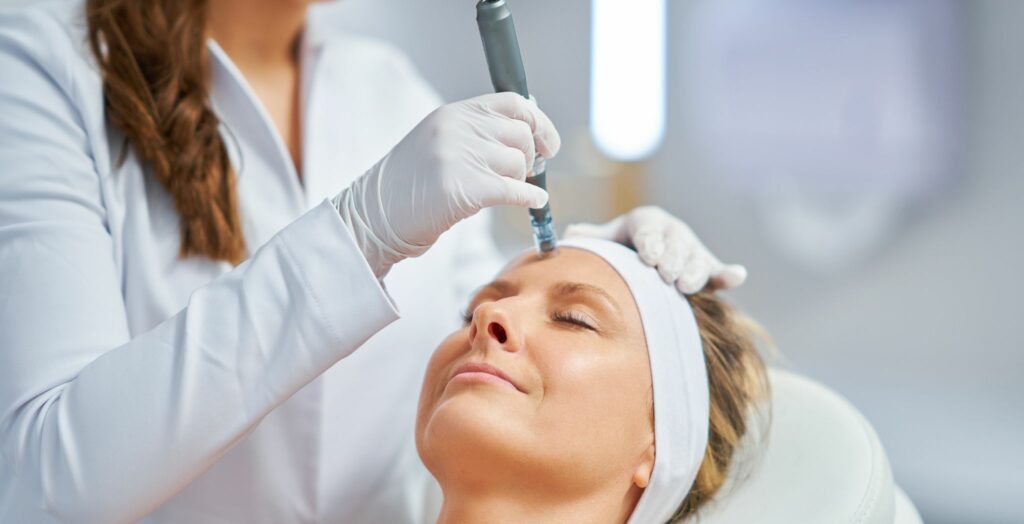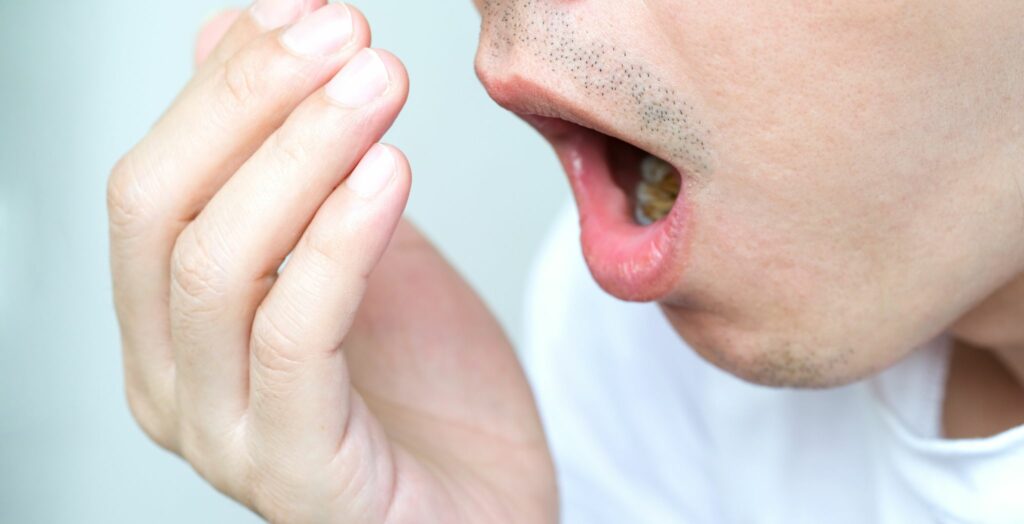Going to the dentist is something most of us need to do regularly to keep our teeth and gums healthy. But for some people, just thinking about a dental visit can make their heart race, their palms sweat, and their stomach churn. This feeling isn’t just a little bit of nerves; it’s called dental anxiety, and it’s a very real and common problem.
If you feel this way, you’re definitely not alone. Many Australians experience some level of fear or worry when it comes to dental appointments. The good news is that dental anxiety can be understood and, most importantly, managed. This article will help you learn all about dental anxiety, why it happens, and what you can do to make your next dental visit a much more comfortable experience.
What Is Dental Anxiety?
At its simplest, dental anxiety is a feeling of fear, stress, or worry related to going to the dentist or receiving dental treatment. It can range from mild nervousness to a complete and overwhelming sense of panic, sometimes called dental phobia.
Imagine you have a dental appointment coming up. If you have dental anxiety, you might start to feel uneasy days or even weeks before. You might find yourself thinking about it constantly, trying to find excuses to cancel, or even feeling physically sick. This isn’t about being silly or overreacting; it’s a genuine reaction to a situation that your mind perceives as threatening.
It’s important to know the difference between dental anxiety and dental phobia. Dental phobia is a much more intense and often irrational fear. Someone with a dental phobia might avoid the dentist for years, even if they’re in pain or know their oral health is getting worse. They might experience extreme panic attacks at the thought of a visit. Dental anxiety, while still difficult, might involve more manageable feelings of worry that can often be overcome with the right strategies.
Causes of Dental Anxiety
So, why do some people develop dental anxiety? There are many reasons, and often it’s a combination of a few things:
- Bad Past Experiences: This is one of the most common reasons. If you had a painful, uncomfortable, or scary experience at the dentist as a child or even as an adult, that memory can stick with you. A particular sound, smell, or sensation might trigger those old feelings. Maybe the local anaesthetic didn’t work properly, or the dentist seemed impatient or unkind.
- Fear of Pain: Nobody likes pain. The thought of needles, drilling, or other procedures can be incredibly frightening. Even if you’ve never had a truly painful experience, stories from friends or family, or what you see on TV, can make you believe dental work is always painful.
- Feeling Helpless or Out of Control: When you’re in the dental chair, you’re often lying back with your mouth open, feeling vulnerable. You might feel like you can’t see what’s happening, can’t easily talk, or can’t just get up and leave. This loss of control can be very unsettling for some people.
- Embarrassment: If you haven’t been to the dentist in a long time, you might feel embarrassed about the condition of your teeth or gums. You might worry about being judged by the dentist or hygienist.
- Fear of Needles (Trypanophobia): For many, the sight or thought of an injection is terrifying. Even if they understand it’s necessary for numbing, the needle itself can cause intense anxiety.
- Fear of Gagging: Some people have a very sensitive gag reflex, and the thought of instruments in their mouth triggering this can be a major source of anxiety.
- Specific Sounds or Smells: The whirring of the drill, the smell of certain dental materials, or even the general scent of a dental clinic can trigger anxiety for some people, reminding them of past experiences.
- Hearing Negative Stories: Just like with fear of pain, hearing bad stories from others can make you expect the worst, even if your own experiences have been okay.
Common Signs and Symptoms of Dental Anxiety
How do you know if you have dental anxiety? The signs can be physical, emotional, and behavioural.
- Physical Symptoms
- Racing heartbeat
- Sweaty palms
- Feeling sick to your stomach or a tummy ache
- Dizziness or feeling faint
- Shortness of breath
- Muscle tension, especially in the jaw or neck
- Trembling or shaking
- Difficulty sleeping the night before
- Feeling like you might cry
- Emotional Symptoms
- Feeling overwhelmed or panicked
- Irritability or edginess
- Feeling very nervous or tense
- A sense of dread
- Feeling helpless
- Behavioural Symptoms
- Avoiding making appointments
- Repeatedly cancelling appointments at the last minute
- Finding excuses not to go to the dentist
- Trouble relaxing in the dental chair
- Feeling like you need to escape during treatment
- Becoming aggressive or argumentative
If you recognise several of these signs in yourself, it’s very likely you’re experiencing dental anxiety.
How Dental Anxiety Impacts Oral Health
The biggest problem with dental anxiety is that it often leads to avoiding the dentist. And when you avoid regular check-ups and necessary treatments, your oral health can suffer significantly.
- Worsening Problems: A small cavity that could be easily fixed might grow into a large one, leading to root canal treatment or even tooth extraction. Gum disease can become more severe, potentially causing tooth loss.
- Increased Pain: Ignoring dental problems often means you’ll eventually experience more pain, which then reinforces your fear of the dentist. It becomes a vicious cycle.
- Emergency Visits: People who avoid routine care often end up needing urgent treatment for severe pain or infections, which can be more complex, expensive, and stressful than planned appointments.
- Impact on General Health: Oral health is linked to overall health. Untreated infections in your mouth can affect your heart, lead to diabetes complications, or even impact pregnancy outcomes.
- Lower Quality of Life: Chronic dental problems can affect your ability to eat comfortably, speak clearly, and even feel confident about your smile. This can impact your self-esteem and social life.
Changes in Modern Dentistry That Improve Comfort
The good news is that dentistry has come a long way! Many of the things that might have made past dental visits uncomfortable have changed for the better. Modern dentists, especially those who understand dental anxiety, use techniques and technologies designed to make you feel more at ease.
- Gentle Anaesthesia: Injections are often much less painful now. Dentists use numbing gels before the needle, and the needles themselves are much finer. Techniques like slow injections also reduce discomfort.
- Better Pain Control: Modern pain management means you should rarely feel pain during a procedure. If you do, it’s important to let your dentist know immediately so they can adjust the anaesthesia.
- Noise Reduction: Some dental drills are quieter than they used to be. Many clinics offer headphones so you can listen to music or podcasts to block out the sounds.
- Patient Comfort Focus: Many dental practices, like a great dentist in Penrith or a friendly dentist in Cranebrook, are designed to feel less like a sterile medical office and more like a calming space. They might have comfortable chairs, pleasant lighting, and even TVs on the ceiling.
- Less Invasive Techniques: Advances in dental technology mean some procedures are less invasive. For example, some early cavities can now be treated without a drill using special filling materials.
- Increased Awareness of Anxiety: Dentists are much more aware of dental anxiety now. They receive training on how to help anxious patients and understand that fear is a valid feeling.
Techniques to Manage Dental Anxiety
If you experience dental anxiety, there are many things you can do to manage it. These techniques can be used before and during your appointment.
- Deep Breathing Exercises: Before and during your appointment, focus on slow, deep breaths. Breathe in slowly through your nose, hold for a few seconds, and then exhale slowly through your mouth. This calms your nervous system.
- Mindfulness and Distraction: Try to focus on something other than the procedure. Listen to music or an audiobook with headphones. Some clinics have TVs or even virtual reality goggles. You can also focus on a specific object in the room or count ceiling tiles.
- Grounding Techniques: If you feel overwhelmed, focus on your senses. What do you see, hear, smell, feel, and taste (even if it’s just the taste of your own mouth)? This can bring you back to the present moment.
- Progressive Muscle Relaxation: Tense one group of muscles (like your fists) for a few seconds, then relax them. Work your way through different muscle groups. This can help release overall body tension.
- Visualisation: Imagine yourself in a calm, peaceful place – a beach, a forest, or your favourite armchair. Focus on the details of that place and how it makes you feel.
- Bring a Support Person: If it makes you feel more comfortable, ask if you can bring a friend or family member with you to the waiting room.
- Choose the Right Time: If possible, book appointments for times when you feel less rushed or stressed. Sometimes, being the first appointment of the day can help, as you don’t have to wait as long.
Professional Support and Sedation Options
Sometimes, self-help techniques aren’t quite enough, and that’s perfectly okay. There’s professional support available to help you.
- Talking to Your Dentist: This is the most important step! A good dentist understands dental anxiety. They can explain procedures, go at your pace, and stop if you need a break.
- Sedation Dentistry: For moderate to severe anxiety, sedation options can make a huge difference.
- Nitrous Oxide (Laughing Gas): This is a very common and safe option. You breathe it through a small mask over your nose. It helps you feel relaxed, a bit giggly, and less aware of what’s happening. The effects wear off quickly after the mask is removed.
- Oral Sedation: Your dentist might prescribe a pill to take before your appointment. This medication makes you feel very drowsy and relaxed. You’ll need someone to drive you to and from your appointment.
- IV Sedation (Intravenous Sedation): This is a stronger form of sedation administered through a vein. You’ll be in a “twilight” state, very relaxed and possibly not remembering much of the procedure. Again, you’ll need someone to drive you.
- General Anaesthesia: For very complex cases or extreme phobias, general anaesthesia might be used. In this, you are completely asleep during the procedure, usually in a hospital setting. This is typically only used for very serious cases when other options haven’t worked.
Your dentist will discuss which sedation option is safest and most appropriate for your level of anxiety and the treatment you need.
How to Prepare for a Dental Visit
A little preparation can go a long way in reducing anxiety.
- Choose the Right Dentist: Look for a dentist who openly states they cater to anxious patients. Read online reviews. Ask friends for recommendations for a “gentle dentist.” If you’re in the Penrith area, search for a “dentist in Penrith” or “dentist Cranebrook” who has a good reputation for patient comfort.
- Schedule a “Meet and Greet”: Some dentists offer a quick chat before your first appointment where you can just meet them, see the clinic, and discuss your fears without any treatment happening.
- Communicate Your Fears: When you book your appointment, let the receptionist know you’re anxious. This helps the dental team prepare.
- Write Down Your Concerns: Before your appointment, jot down any questions or worries you have. This ensures you don’t forget anything when you’re in the chair.
- Wear Comfortable Clothes: Choose loose, comfortable clothing.
- Eat Something Light: Don’t go on an empty stomach, but avoid heavy or sugary foods that might make you feel nauseous.
- Plan Your Travel: Make sure you know how to get to the clinic and allow plenty of time so you don’t feel rushed.
Importance of Open Communication with Your Dentist
This cannot be stressed enough: talk to your dentist! Your dentist wants to help you, but they can’t if they don’t know what you’re feeling.
- Tell Them You’re Anxious: Right at the beginning, tell your dentist about your fears. Don’t feel embarrassed. They’ve heard it all before.
- Agree on a “Stop” Signal: Discuss a hand signal (like raising your hand) that you can use to let them know if you need them to stop, even for a moment. This gives you back a sense of control.
- Ask Questions: Don’t be afraid to ask about what they’re doing, why they’re doing it, or how long it will take. Understanding the procedure can make it less scary.
- Give Feedback: If something is uncomfortable, speak up. If something they’re doing is helping, tell them that too!
- Don’t Rush: Ask your dentist to take breaks if you need them. A good dentist will be patient.
Encouragement for Patients Avoiding the Dentist
If you’ve been avoiding the dentist for months or even years because of anxiety, please know that it’s never too late to take the first step. Your dental team is there to help, not to judge. They understand that life gets in the way and that fear is a powerful emotion.
Think about the long-term benefits: getting on top of your dental health now can prevent more serious problems (and more intense treatments) down the track. Imagine being able to eat what you want, smile confidently, and not worry about toothaches. This is all possible, even if you have severe dental anxiety.
Start small. Maybe your first visit is just a consultation to talk about your fears and examine your mouth. You don’t have to jump straight into a big procedure. Build trust and take it one step at a time. Many dentists who serve communities like Cranebrook and Penrith specialise in helping nervous patients, so don’t hesitate to reach out to a local dentist.
Conclusion
Dental anxiety is a real and often debilitating fear, but it doesn’t have to control your oral health or your life. By understanding what causes it, recognising its symptoms, and learning about the many ways to manage it, you can take back control.
Modern dentistry is more comfortable and patient-focused than ever before. With open communication, practical techniques, and professional support (including sedation options), you can have a positive dental experience.
Don’t Let Fear Prevent You From Having a Healthy Smile
If you’ve been putting off your dental check-up, today is the day to make a change. Take that first brave step. Search for an expert dentist who understands dental anxiety, and book an appointment. Talk to Cranebook Dental about your fears.
You’ll be surprised at how much easier it can be when you have the right support. Your teeth and your peace of mind will thank you for it.



